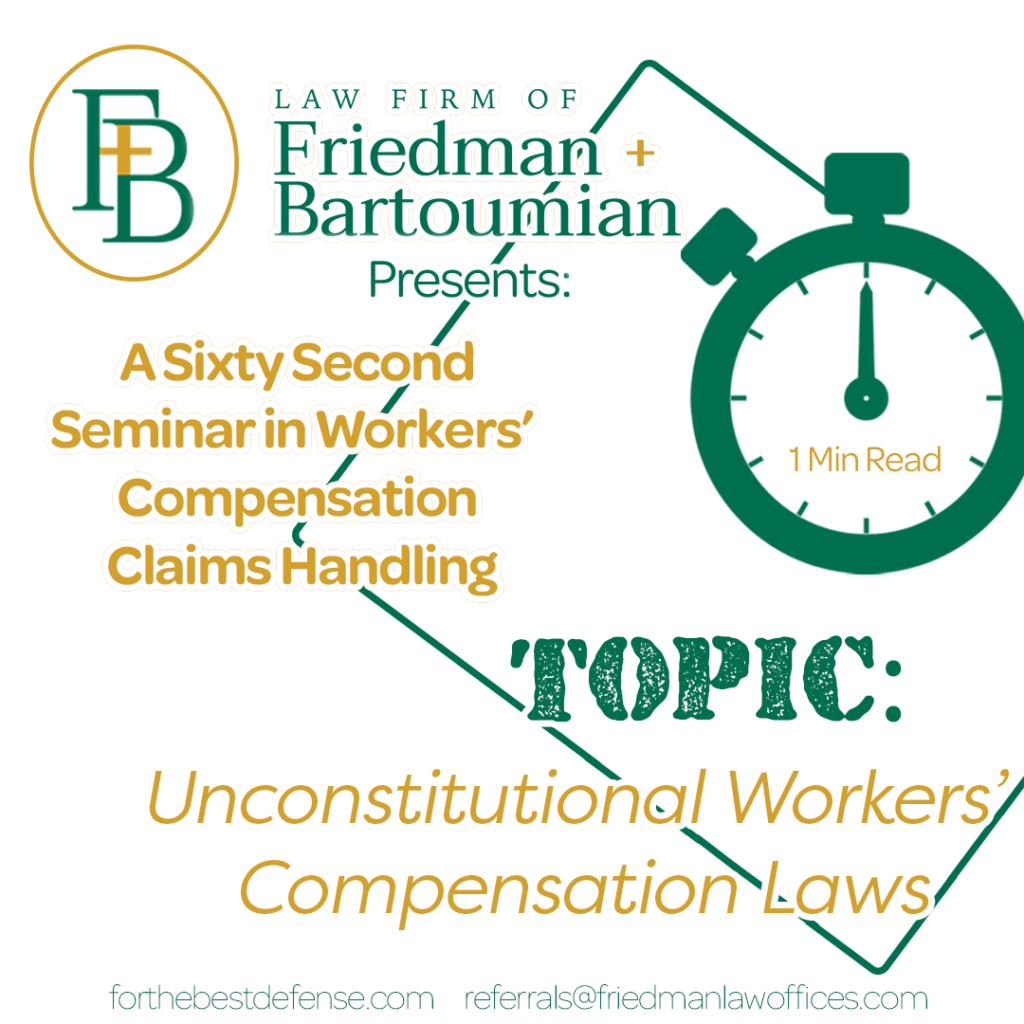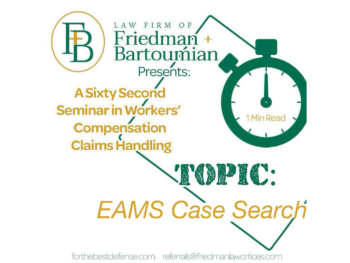
Allow us to begin today’s blog by asking a question. Are you aware that certain Labor Code sections have been determined to be unconstitutional? For example, the following two Code sections (which governed the payment of death benefits to the “estate” of a deceased employee) have been invalidated in court:
LC 4702(a)(6)(A)
LC 4702(a)(6)(B)
On November 27, 2006, Division 3 of the California Court of Appeal for the Second District, in a unanimous decision, declared these laws unconstitutional on the basis that death benefits cannot legally be paid to an “estate.” Nevertheless, these laws still remain on the books to this very day, since the state legislature has not passed “cleanup” legislation to remove them.
For a new attorney or claims person just starting out in workers’ compensation, this situation can be somewhat confusing. One of the best ways for claims professionals or attorneys to learn about our compensation laws is to actually read the Labor Code. But as we have just discovered, the code contains laws that are no longer enforceable. Until cleanup legislation is enacted, the potential exists that an administrator might mistakenly rely on them and wrongfully pay death benefits to the estate of a deceased worker. It is difficult to understand why the enactment of the remedial legislation is taking so long, as these statutes were declared unconstitutional more than 16 years ago.
In the present day, two new California laws are under constitutional challenge: AB 5 and Proposition 22, both of which pertain to gig workers. These laws are exactly opposite each other. AB 5 classifies gig workers, such as drivers for Uber, DoorDash, and Lyft, as “employees,” while Proposition 22 classifies these drivers as “independent contractors.” The constitutionality of AB 5 was recently reviewed in U.S. federal court before the 9th Circuit Court of Appeals, where on 3/17/23 the court ruled that the District Court should not have dismissed an equal protection argument that would have rendered the statute unconstitutional. The case was remanded back to the District Court for reconsideration.
Meanwhile, an appeal over the constitutionality of Proposition 22 was heard in state court at the Court of Appeal for the First District in San Francisco, where on 3/13/23, in a 2-1 decision, the District Court of Appeal declared Proposition 22 to be constitutional. We now await an inevitable appeal to the California Supreme Court; however, until all appeals are finalized, the workers’ compensation system must abide by the provisions of Proposition 22, wherein gig workers are classified as independent contractors.
Interestingly, the California Attorney General’s office is now responsible for defending both AB 5 and Prop 22, despite the two laws having contrary ends. In federal court the AG’s office asserts that gig drivers are employees, while in state court they assert that these very same drivers are independent contractors. Confusing, isn’t it?


 Private Medical Reports: A Sixty-Second Seminar in Workers’ Compensation Claims Handling
Private Medical Reports: A Sixty-Second Seminar in Workers’ Compensation Claims Handling
Leave a Reply